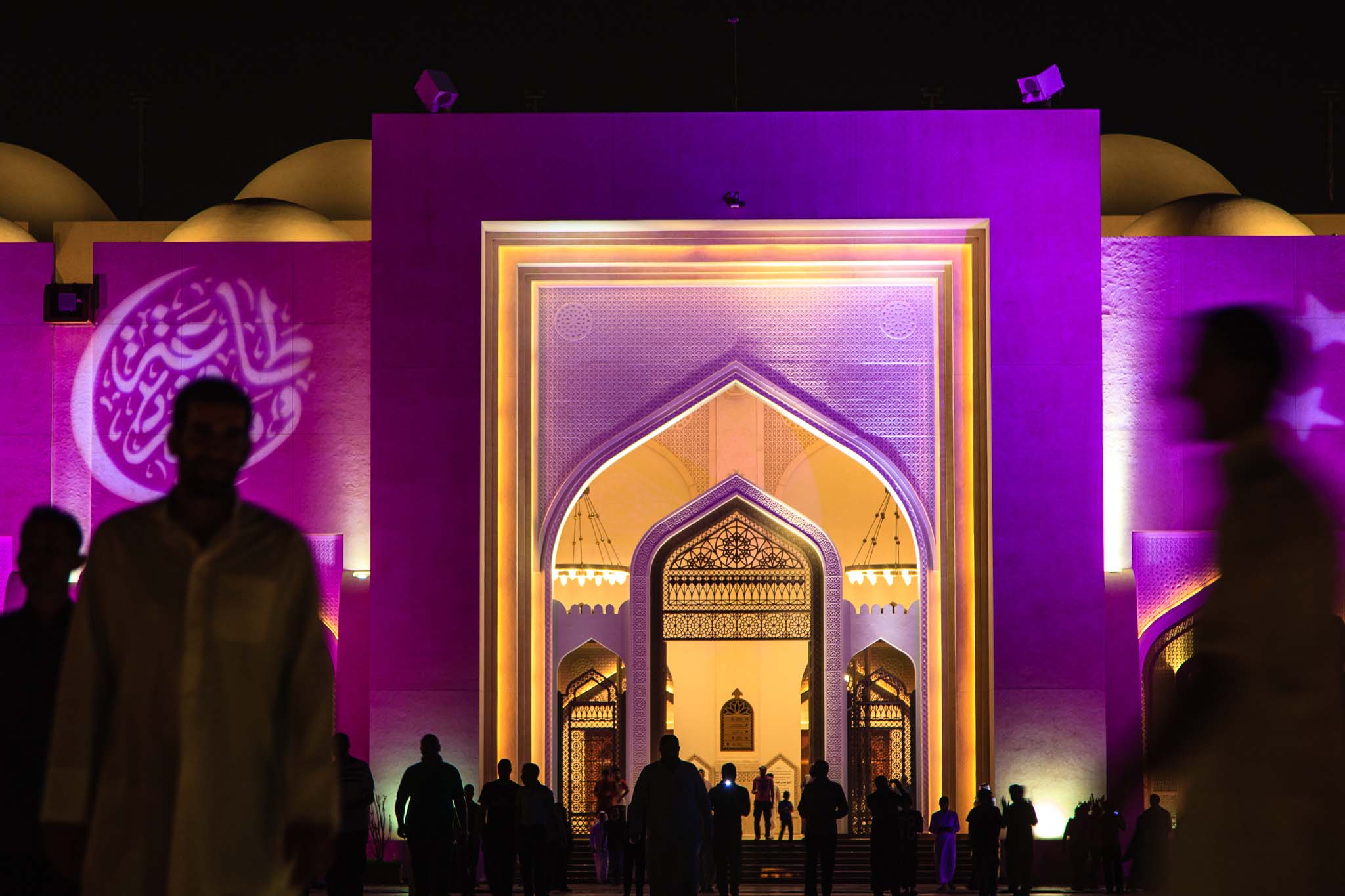
Ramadan is rapidly approaching, and it’s a big deal in Qatar, a conservative Muslim country that goes a bit topsy-turvy once the fasting month begins.
Whether this is your first Ramadan here or not, here’s a helpful crash course (or refresher) on what to expect in the coming days.
The moon sets the schedule
The Islamic calendar is a lunar one, so the month of Ramadan won’t officially begin until the new moon is spotted.
Each year, Qatar’s Islamic affairs ministry asks Muslims to look to the sky to spot the moon, though this is often difficult to do.

This year, astronomers expect the start of Ramadan to be declared the evening of June 5, and fasting to begin on Monday, June 6. Watch this space for the official announcement in Qatar.
Similarly, the end of Ramadan will be marked by the spotting of the new moon. That means Muslims will either fast 29 or 30 days, with a days-long festival marking Eid Al-Fitr expected to begin around Wednesday, July 6.
You can’t eat and drink in public
Once Ramadan begins, it’s illegal for adults to consume food or drink beverages publicly during the fasting day. That also means no gum-chewing or cigarette smoking. Those who do, risk being fined (though are usually just warned).
For those who aren’t fasting (non-Muslims and Muslims who are ill, or women who are pregnant, breast-feeding or menstruating), eating at work can be tricky.
Some offices have a designated spot like a lunchroom for people to eat. Others find it’s just easier to eat at home after their abbreviated workday is over.

It’s also important to note that most restaurants are closed during the day in Ramadan (and many shops too!)
But some will offer takeaway services – stay tuned for our opening hours guide for a list of those eateries.
Workdays are shorter
Regardless of your religion, Qatar law mandates shortened workdays for residents during Ramadan. For the public sector such as government ministries and other public institutions, that means five hours a day, from 9am to 2pm.

Those working in the private sector should have their schedules shortened from eight hours a day to six.
However, not all employees have shorter workdays. If this is the case, they are usually entitled to overtime compensation or additional time off.
Eid will coincide with school vacation
In the past couple years, many people in Qatar put off going on summer holiday until after Eid, so the country didn’t turn into a ghost town until late July or August.

But this year, Eid Al-Fitr is going to be during the first week of July, coinciding with many children’s school holidays. So expect a mass exodus from the country at this time.
If you plan to be part of the leaving crew, be sure to book your plane tickets ASAP, as flights to many popular destinations are becoming tremendously expensive.
There’s no alcohol
Muslims are prohibited from drinking alcohol, and though Qatar sells it in a limited fashion most of the year, the country will be dry during Ramadan.

That means hotel restaurants and the Qatar Distribution Co. (the only place where booze is sold for home consumption) will be closed until Eid.
QDC is closed as of Monday, June 6 and reopens on Saturday, July 9, so expect long lines outside the warehouse ahead of the start of the fasting month next week. Hours are 9am to 9pm Saturday-Thursday.
Another thing that usually gets put on hold is new releases for movies, so don’t expect to enjoy any new blockbusters until July.
Generosity is key
Along with stepping up spiritual reflection and attending special night prayers at the mosque, Muslims increase their charitable efforts during Ramadan.
This is also one of two times a year that the Emir pardons prisoners.

Help out this month by volunteering or contributing to people in need (here are some ways to do that) and being more considerate of those around you.
Last year for example, rights groups urged Qatar families to grant domestic workers adequate time off during the month.
Expect some bad behavior
This Ramadan will entail fasting for some 15 hours a day, including on the longest day of the year (June 21).
Given that length of time and the fact that it’s going to be very hot outside, people are likely to have shorter tempers during the upcoming month.

Expect some people to drive particularly poorly around iftar time, when they are rushing to meet family and friends to break their fasts together.
Additionally, Ramadan is a month where health officials have to remind people not to eat too much and to try to get enough sleep. Bottom line: While trying to be more social and spiritual in Ramadan, be sure to also take care of yourself.
There’s lots to do
Because day and night are somewhat switched during Ramadan, there is a lot of stuff going on around Qatar during the evenings.

Most restaurants usually stay open late, hotels have lavish iftar and sahoor buffets and venues like Katara Cultural Village and the Aspire Zone usually hold Ramadan-centric activities. That said, expect very heavy traffic at night (8pm to midnight), when people go out to shop, eat and run errands.
There are also some unique celebrations like the sunset canon at the State mosque, the pre-iftar Corniche car parade and Garangao festivities.
At a time of the year when things usually slow down in Qatar, the events are usually welcomed by residents.
What do you think people should know about Ramadan in Qatar? Thoughts?
More Ramdan coverage:
https://dohanews.co/ramadan







